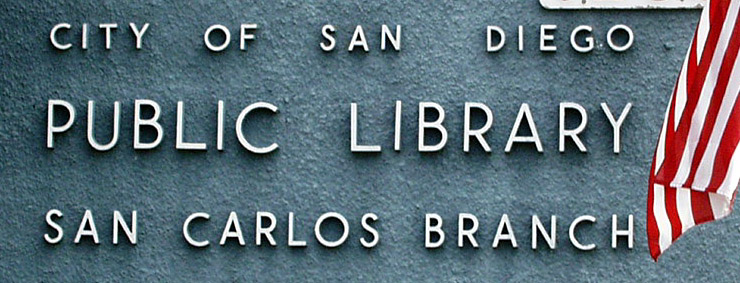By Donald H. Harrison
SAN DIEGO, Calif.— Actress Lauren Bacall refers to herself as
having grown up a "nice Jewish girl" in various passages of her
recently reissued autobiography, By Myself and Then Some—which has
been updated with the "then some" since its original issue in 1978.
Having grown up in New York, she came to Hollywood and the world of movies
during World War II, when Nazis were doing their best to murder every Jew in
Europe, and America had proven itself less than sympathetic to Jews who wanted
to escape from Hitler's hell.
So, it is perhaps understandable that Bacall bit her tongue whenever the man
who made her career, director Howard Hawks, gave vent to his
anti-Semitism. Here was a man who had seen her photograph on the cover
of Harper's Bazaar when she was 18 and propelled her within two
years into super movie stardom playing opposite Humphrey Bogart in the
1944 movie, To Have and To Have Not. That's the one in which as
"Slim" she said saucily to Bogart's character, "You know how to
whistle, don't you Steve ? Just put your lips together and blow."
She fell in love and began dating Bogart, notwithstanding that he was then
still married to his third wife, Mayo Methot. Fearfully, she told Bogart that
she was a Jew. She writes: "I had to ask the question that
had been so much on my mind — I had to get it straight. Did it matter
to him that I was Jewish? Hell, no— what mattered to him was me, how I
thought, how I felt, what kind of person I was, not my religion. He couldn't
care less— why did I even ask? He couldn't really understand my
anxiety, but he'd never felt it himself—he wasn't Jewish. Being singled out
for such a thing was inconceivable to him. It was a big weight off my
shoulders— I was relieved to have it in the open, it had been lurking too
long in the unfinished-business department of my mind."
Bogart's third wife, angrily used religion as a weapon against Bacall, who
would become her successor as Bogart's wife. On one occasion, Bogie, drunk,
telephoned Bacall at her home in the middle of the night. Methot picked
up the extension. Here's how Bacall describes what followed.
"'Listen, you Jewish bitch—who's going to wash his socks? Are
you? Are you going to take care of him?' I was numb— I stood there,
scared to death and horrified, with my mouth open— holding the phone away
from my ear, afraid to say anything. My mother said, 'Who is that? Hang
up the phone.' After more vilification and Bogie shouting, 'Hang up the
phone, God damn it!' to her — I hung up. Unnerved to say the least.
So she knew about me -- all our care to avoid this, all for naught."
If you're getting a little squeamish about whether this is the way a
"nice Jewish girl" behaves— stealing another woman's
husband—there is more to give you pause. Eventually, Bogart and Bacall
were married. They had two children, Steve (named for Bogart's character
in To Have and To Have Not, and Leslie. In what religion ought
the two be raised? According to halacha, the children were Jewish
because they had a Jewish mother.
However, writes Bacall, "our decision to send Steve to Sunday School at
All Saints Episcopal Church because his friend Scott Johnson went there had
proved to be the right one—Steve really looked forward to going. But he
couldn't continue without being a church member. Bogie's feeling was that the
main reason for having the children christened was that, with discrimination
still rampant in the world, it would give them one less hurdle to jump in
life's Olympics.
"I, with my family-ingrained Jewish background, bucked it — it felt too
strange to me. True, I didn't go to synagogue, but I felt totally Jewish and
always would. I certainly didn't intend to convert to Episcopalianism
for the children, or to deny my own heritage. At the same time I knew
how important it could be to a child to have a religious identity."
After marrying Bogart and bearing his children, Bacall's movie career went
into decline. She still made movies, but never again achieved the
superstardom she had as a youngster. She spent much of her life trying
to re-achieve that status, a quest that often meant entrusting her children to
nannies or to boarding schools. Unlike her own prototypical "Jewish
mother," who was very much involved and caring about Bacall's life, the
actress seemed far removed from the lives of her children.
Some years after Bogart's death, Bacall married another hard-drinking actor,
Jason Robards, after repeating the pattern of being the "other
woman." She became pregnant with her third child, Sam, during their
courtship. Unlike her marriage to Bogart, her second marriage did not go the
distance. By Bacall's Robards simply was not there for her, and by the time
Bacall found out he was having an extramarital affair, the relationship was
already dead except in name. So they were divorced.
Thereafter, Bacall devoted herself mainly to the theatre, where she had begun
her quest for stardom before the Harper's Bazaar photo spread. The stage
proved a better medium for her than the movies. She won the Tony for Applause,
a musical based on the old Bette Davis movie, All About
Eve.
Bacall writes extensively about her travels to Great Britain, to France,
to India, but curiously not to Israel. About the only time in the book
that Bacall's Jewish background came up in a public context after her
achievement of stardom was at the Jewish funeral for her mother, Natalie Bacal.
Unless, Queen Esther-like, Bacall has been working for Jewish causes behind
the scenes, one fears that with Natalie's passing, so too did this family's
attachment to Jewish peoplehood.


